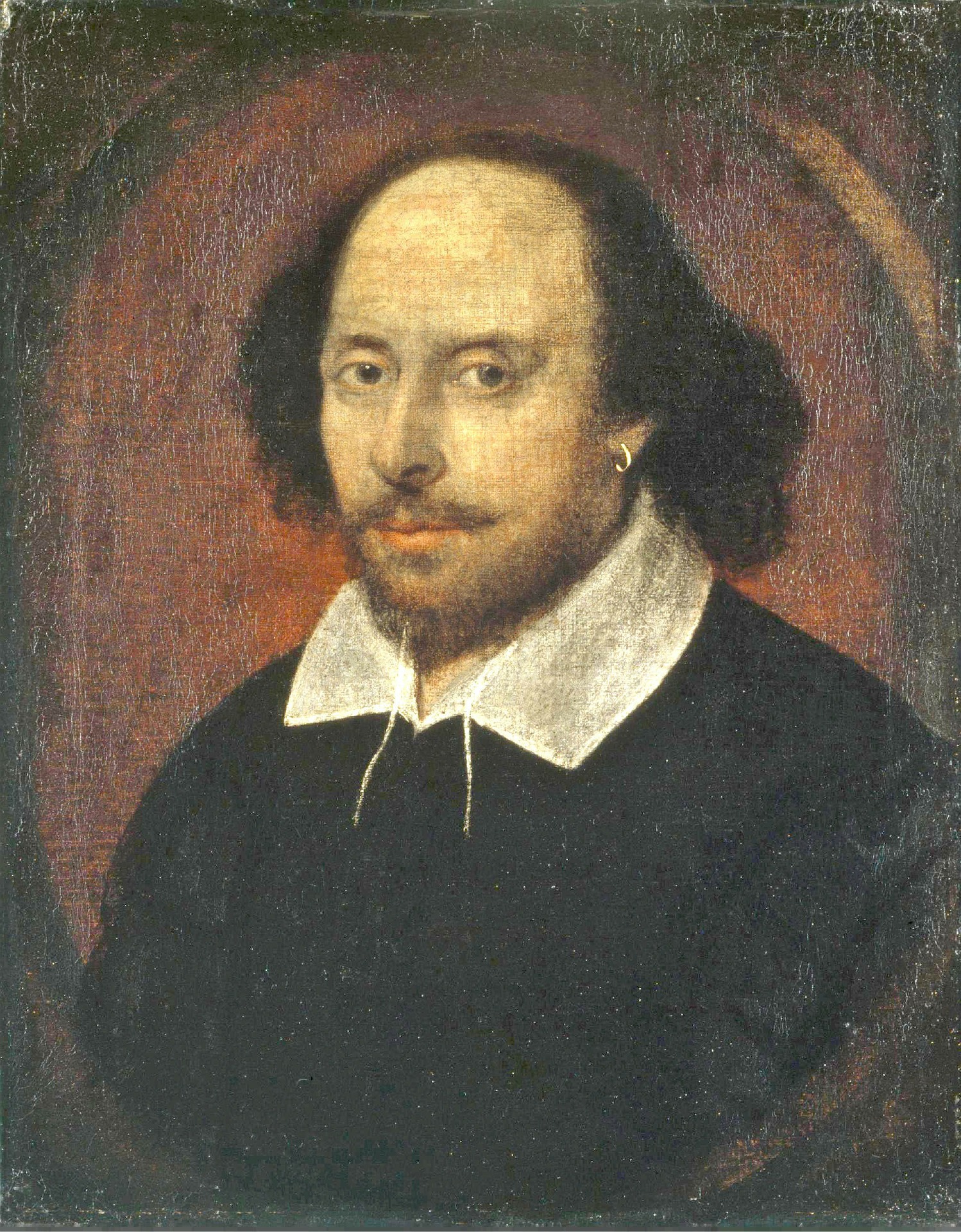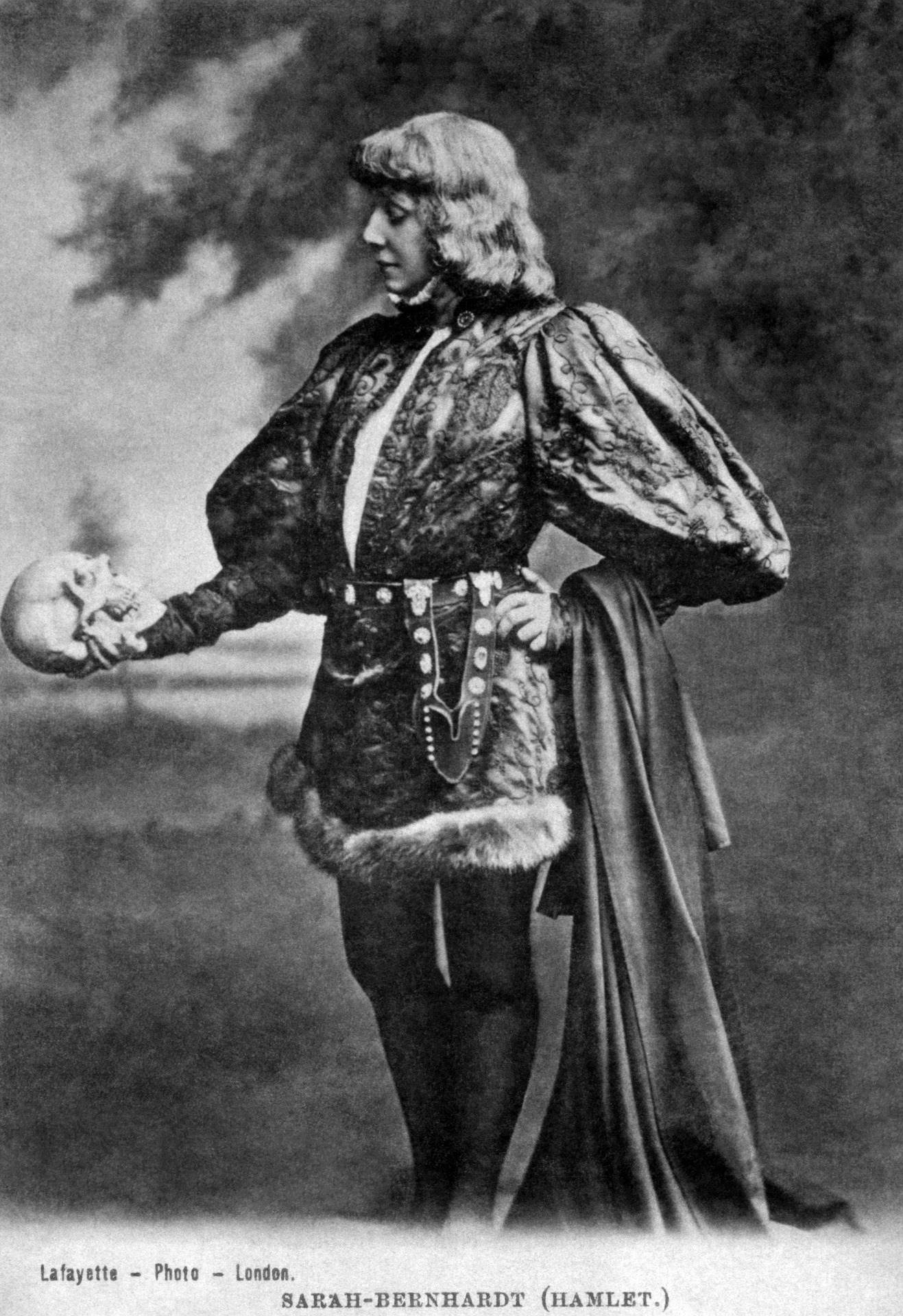
The Shakespeare Industrial Complex and the Miracle of the Virgin Playwright
The conventional Stratford-upon-Avon Shakespeare story requires a cognitive miracle. So, why are there so many believers?
An off-season visit to Stratford-upon-Avon, where I discovered that there is no off-season for tourists and where I witnessed the full force of the Shakespeare Industrial Complex, reminded me of an age-old question: Who actually wrote the Shakespeare plays, sonnets, and narrative poems? I remember having debated this issue long ago in college.
So, I decided to revisit this mildly subversive subject and soon discovered that I was dealing with a quasi-religious icon. It seems that myths gain power over us when they serve our interests. And if the stakes are high enough, they can rise to become unquestioned dogma that must be defended against the heretics and non-believers, even if they defy the factual evidence.
A classic case in point, it appears, is the son of a provincial small-town craftsman (a glove maker) in Elizabethan England whose name was William Shaksper (or Shakspher, or Shaks. – the spelling varied). He had little schooling, as evidenced by the fact that nothing in his own handwriting has ever been found other than six awkwardly written signatures, most notably the three on his last will.

At 18, he hastily married a 26-year-old local woman who was several months pregnant. Two years and an additional set of twin children later, it seems that he left his family and went to London to become a general-purpose assistant in a theater company – later called The Lord Chamberlain’s Men. It is said to have been subsidized by Queen Elizabeth’s Lord Chamberlain -- the 17thEarl of Oxford, Edward de Vere, a high-ranking courtier and a lavish patron of theater, music, and the arts. Shaksper also had parts in the plays produced by The Lord Chamberlain’s Men and, over time, became known as the author of a string of increasingly biting and politically-charged plays with revealing insights into the activities and personalities in the court.
For this notable service, it appears that Shaksper was given a partial ownership stake in the theater company, and he used his profits to become a money lender and property investor. He eventually returned to his home town, Stratford-upon-Avon, for unknown reasons around 1613 and was able to purchase one of the largest homes in the area with the help of a large financial “gift” (bribe?). He described himself as being in “perfect health” in his last will, in March of 1616, but one month later he died at age 52, perhaps of a fever.
There was no mention in his last will of any plays, poems, manuscripts or other papers, although he did leave his “second best bed” to his wife. He was buried beneath a plain, non-descript stone slab in his local church with an off-putting epitaph that warned people not to disturb his grave. (He had a reputation as a mean-spirited miser and was involved in a number of petty law suits over the years.) There is no evidence of a funeral ceremony or a eulogy attended by any of his London theater acquaintances, much less any admirers of the Shakespeare plays. Only years later was a modest wall monument erected in the church showing a likeness of him done from memory and speculation – initially with him holding a sack of grain but later doctored to show him with a quill in his hand. There was also a cryptic inscription.
What is the likelihood that Will Shaksper actually authored the 37 (or perhaps more) Shakespeare plays, not to mention 154 lyrical sonnets, two long narrative poems and miscellaneous other works? Both Shaksper’s father and his children are known to have been illiterate. Shaksper himself owned no books, not even a bible. Perhaps he got a local grammar school education. There is no record of it. But where did he gain mastery of foreign languages, broad knowledge of the literature of classical Greece and Rome, deep understanding of English history, the law, medicine, geography (including details of specific localities and customs in Europe), seamanship, astronomy, music, warfare, religion, courtly manners, royal games, high-level politics, and much more? Where did he acquire such an extraordinary command of the English language and such a deep and rich vocabulary? And how did he gain such confidence as a writer and close observer of the famous and powerful figures in Queen Elizabeth’s court, including a dangerous willingness to risk giving offense?
Other writers have risen from humble beginnings, but none ever equaled Shakespeare’s vast intellectual breadth, and depth, and prolific output – or his enormous creativity. Mark Twain, for example, mostly wrote stories about what he knew – life on the Mississippi River – in a vernacular tongue. The conventional Stratford-upon-Avon Shakespeare theory requires a cognitive miracle. Even Mark Twain (among many others over the years) did not think the Stratford man wrote the plays.
What makes the Stratford theory even less credible is that there is a far more plausible alternative candidate available, and a great deal is known about him that fits like a glove (pun intended) with Shakespeare’s writings.
Edward de Vere came from one of the oldest and most distinguished Earldoms in England. For the first twelve years of his life he was raised on an estate where his educated family supported a theater company and frequently produced plays in which young Edward may have performed. His father died suddenly when he was 12 years old, and he became the personal ward of the Queen, who arranged to have him raised in the household of her distinguished (and powerful) Secretary of State, Sir William Cecil, where he was surrounded by books, frequent learned guests, and lively conversation. He was also tutored in languages, the classics, history and other subjects, received formal education at Cambridge University as a precocious “immature” student and studied law in London at Gray’s Inn. He was widely viewed as a prodigy.
After de Vere reached his majority, he rose to become a favorite courtier to the Queen, for a time, and soon gained a reputation for being a brave and skillful jouster – which may be what later inspired the pen-name “spear-shaker” or “Shake-speare” (with a hyphen) for such writings as the two long narrative poems, plays like Richard the Thirdand King Lear, and the sonnets. He also traveled widely abroad, including various locations that are featured in the Shakespeare plays.
As time went on, young de Vere also acquired a reputation for writing excellent lyrical and romantic poetry and brilliant comic and historical plays, some of which were performed at court – anonymously or under a nom de plume. Of course, everyone at court knew who the author was, but it was all but compulsory in those days for courtiers to publish their writings anonymously or through a “front-man.” For one thing they would not have wanted to overshadow or draw attention away from the Queen, whom they were sworn to serve and dared not offend; she was very insecure and could be quite vengeful. But there was also a strong taboo against the nobility engaging in commercial activities. (Curiously enough, all but a few of de Vere’s earliest minor compositions, and his letters, were mysteriously “lost”.)

As time went on, de Vere experienced a number of personal troubles. He made enemies with his erratic behavior and unflattering portrayals of court manners, incidents, and personalities. It is significant that he was ultimately denied membership in the exclusive Knights of the Garter, ordinarily not a problem for a person of his stature. He accidentally killed a servant while engaged in dueling practice. He seriously antagonized his powerful father-in-law (Sir William Cecil, later Lord Burghley) when he became estranged from his young wife after suspecting her of cuckoldry with their first child. He also antagonized the Queen and fell out of her favor for a time after he impregnated one of her ladies in waiting.
But, most serious, he squandered his family fortune with mounting debts and extravagant patronage of the theater, music, and even with subsidies for individual authors. The Queen, while a great supporter of the arts, was distressed about de Vere’s profligate spending. Yet when de Vere ultimately went bankrupt, the Queen stepped in -- after some pleading -- and gave him an unprecedented stipend of £1,000 a year for life without any official explanation. This was the equivalent of about $500,000 a year in today’s dollars. A later rumor had it that the Queen gave Shakespeare £1,000 in return for writing two plays a year. Most likely it was the same £1,000. It seems very unlikely that the Queen would have bestowed such a large fortune on a commoner from Stratford whom she did not know for so little output in return. Indeed, if Will Shaksper had come into such sudden riches soon after his arrival in London, it would certainly have been documented in the countless orthodox Shakespeare biographies.
There are many more pieces that seem very ill-fitting for the Stratford theory of Shakespeare but make a better fit with the Oxford theory. For instance, there are numerous events in de Vere’s life that are portrayed in various plays (like his run-in with pirates, playing tricks on travelers, and street brawls between his retainers and those of his paramour’s family). Then there is the dedication of the two “Shake-speare” narrative poems, Venus Adonis in 1593and The Rape of Lucrece in 1594, to the young Earl of Southampton, who was being pursued as a match for de Vere’s daughter at the time. (There is also some speculation that Southampton was in fact de Vere’s illegitimate son by Queen Elizabeth.)
There is also the strong influence of Arthur Golding’s translation of Ovid’s Metamorphosisin the Shakespeare plays. Golding was de Vere’s uncle (his mother’s brother). De Vere might even have had a hand in doing the translation. Even more remarkable are the 158 underlined passages in de Vere’s personal, annotated Geneva bible that are echoed in the Shakespeare plays and poems (and more may yet be identified).
There are the various mentions of lameness in later poems and plays that coincided with de Vere’s growing lameness from dueling injuries. There is also the coincidence that the frequent publication of corrected versions of earlier plays stopped altogether after de Vere died in 1604 under mysterious circumstances. (Some scholars believe the dark mind-set displayed in the later Shakespeare plays, especially Hamlet,presaged his own undocumented suicide. There were strong incentives in those days for suppressing the truth; it was an illegal act with a deep stigma attached and negative consequences for the heirs.) Also suggestive is the fact that the 154 sonnets, first published five years after de Vere died, carried the title “Shake-speare’s Sonnets” (with the hyphenated name) and a dedication to the “ever living poet” – a phrase then usually applied to an author who was deceased. Not least, there are striking parallels in style and vocabulary between the known writings of de Vere, including his letters, etc., and Shakespeare’s work.
The Stratford supporters point to the fact that several new plays appeared after de Vere died, but there is no unambiguous evidence that they were written after he died, and there is the coincidence that all but one of them appeared after 1608-1609, when de Vere’s widow sold off much of the estate.
Then there is the publication of a nearly complete collection of Shakespeare’s plays in what is known as the First Folio in 1623, with the editorial support of two of Shakespeare’s theater friends and two pointedly ambiguous prefatory poems by Ben Jonson. In one of these poems, Jonson refers to the “Sweet Swan of Avon,” and this is often taken as a confirmation of the Stratford man’s authorship, but various scholars have disputed its true meaning. A more serious problem with this interpretation is the fact that de Vere’s family was involved in the publication project and is said to have paid for some, if not all of it. Indeed, the First Folio is dedicated to the 3rd the Earl of Pembroke (the new Lord Chamberlain) and his brother Philip, who was married to de Vere’s daughter Susan.
The clincher for the anti-Oxford partisans, in their view, is that the entire de Vere thesis is grounded in what they see as a highly implausible “conspiracy theory” that was universally respected and perpetuated by de Vere’s family and friends even long after he was dead. Why did the truth of de Vere’s authorship never come out? It all seems very Shakespearian.
The answer, almost certainly, was that there was no conspiracy. Instead, there was a solemn pledge that a humiliated and financially needy de Vere must have made to his Queen that, as a quid pro quo for her extraordinarily generous financial support for him and his ancient Earldom, and for the freedom to continue writing and producing plays and poetry without restraint in a dark and conspiratorial political era, he would never reveal the true authorship of his works.
The reason is obvious. If de Vere’s authorship were ever to be acknowledged publicly, it would become apparent that the Queen was endorsing and subsidizing these highly political, often contentious works – and the playwright. The Elizabethan court was a place where personal honor mattered a great deal, and de Vere’s friends and family would have wanted to respect his pledge and, of course, protect his stipend – not to mention their own standing with the Queen. Their obligation was to him, and to the Queen, not to a “posterity” that could only be vaguely imagined back then. Likewise, they did not want to jeopardize the stipend that the de Vere family, and the Earldom, continued to receive (though at a reduced rate) even from Queen Elizabeth’s successor, King James I, after she died in 1603 and de Vere died in 1604. As the saying goes, follow the money. (King James also sponsored the production of several Shakespeare plays as a commemoration after de Vere died.)
You could dismiss all this (and more) as a “just-so” story. Of course, the countless Stratford biographies are filled to the brim with speculative just-so stories, some very far-fetched since so little is known about the Stratford man. But sometimes a just-so story turns out to be true. In this case, the weight of the evidence is clearly on the side of the Oxford theory, as several U.S. Supreme Court justices – among other luminaries – have concluded over the years. But we are not in a court of law. We are in a church. And it’s a church with a very large infrastructure that depends on tithes and offerings from the faithful. Shakespeare, Inc., is a world-wide conglomerate of vested interests in thousands of books, and prominent scholars, and academic courses, and theater companies, and festivals, and movies, and pilgrimages to sacred sites, and container-ship loads of souvenirs, and a significant segment of the global tourism industry.
However, support for the Oxford theory continues to grow, and in time it may be possible – even advantageous – for the Shakespeare Industrial Complex to adopt a more open-minded, ecumenical position on the matter. Rather than choosing between the alternative candidates, the economic powers that be might decide to feature both of them and perhaps even include de Vere’s birthplace in Essex in their tour itineraries. Indeed, this would create many more opportunities for Ph.D. theses, trade books, the souvenir industry, tourism on an industrial scale, and more. If there’s gold in it, the prospectors will eventually find it.
As for those who still prefer to be guided by the weight of the evidence rather believing in miracles, they will be free to choose a version of the Shakespeare authorship that is both far more plausible and provides a much deeper, richer, and more interesting frame for understanding and interpreting this great body of work. In any event, Shakespeare’s work will continue, as always, to speak for itself – the “soul of the age” in every age.
____________________________________________________
* Dr. Peter A. Corning is currently the director of the Institute for the Study of Complex Systems in Seattle, WA. (see his website at www.complexsystems.org). He was a one-time science writer at Newsweek and a professor for many years in the Human Biology Program at Stanford University. In addition to some 200 professional papers, he has published seven books, including Synergistic Selection: How Cooperation Has Shaped Evolution and the Rise of Humankind (World Scientific 2018).









